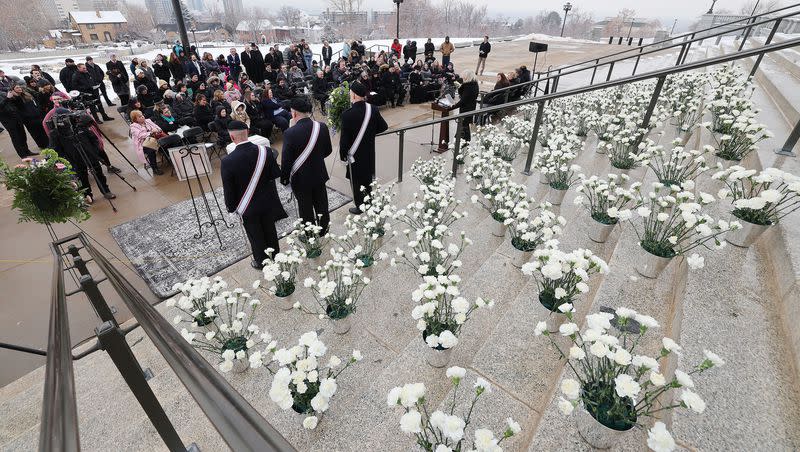One year post-Roe, what’s the status of abortion law in Utah?

A year after the Supreme Court upheld Mississippi law restricting abortion, voting 5-4 to overturn the landmark decision Roe v. Wade and give states the power to enact abortion restrictions or enshrine protections, the impact of those decisions has not been fully realized in Utah.
Enforcement of Utah’s trigger law, passed by the Utah Legislature in 2020 in anticipation of the Supreme Court overturning Roe, remains on hold as Planned Parenthood Association of Utah and the ACLU Utah chapter challenge the constitutionality of Utah’s laws. Oral arguments on the state’s interlocutory appeal are scheduled before the Utah Supreme Court on Aug. 8.
Sen. Dan McCay, sponsor of SB174, colloquially referred to as the trigger law, said in a statement that Utah leaders will “continue to fight to protect life and defend the unborn.”
“In Utah, we value all human life. Prohibiting elective abortion except for rape, incest or medical emergency protects our most innocent population. My hope is that we can safeguard both children and women with the legislation we’ve passed in Utah,” McCay said.
HB467, passed earlier this year, would require abortions to be performed in a hospital (with some exceptions) and would prohibit licensing abortion clinics after May 2, 2023, allowing licenses to certain clinics based on certain standards. That law remains on hold as well as pending legal challenges.
Meanwhile, Planned Parenthood Association of Utah President and CEO Kathryn Boyd said in a statement Friday that the association is committed to “ensuring that the people of Utah do not lose vital access to abortion services. We refuse to stand idly by as reproductive rights are undermined. We will continue to advocate tirelessly for the autonomy and well-being of every individual in our state.”
In a speech on the Senate floor Thursday, Utah Sen. Mike Lee praised the Dobbs v. Jackson decision as restoring “sanity and compassion to the laws that guide our nation.”
“Now we’re positioned to acknowledge that every life from conception to natural birth deserves our protection, and our compassion and our care and yes, in some states, they’re going to do that differently than others,” he said.
Related
For now in Utah, a 2019 law that prohibits abortion after 18 weeks but allows some exceptions after that point, remains in place.
The Utah Attorney General’s Office, which is defending the Utah laws, had no comment other than referencing the upcoming oral arguments before the Utah Supreme Court in August.
According to data from The New York Times, 14 states now ban most abortions.
Polls conducted for the Deseret News and the University of Utah’s Hinckley Institute of Politics suggest majority support for Utah’s trigger law but less so for the clinic ban legislation passed earlier this year.

